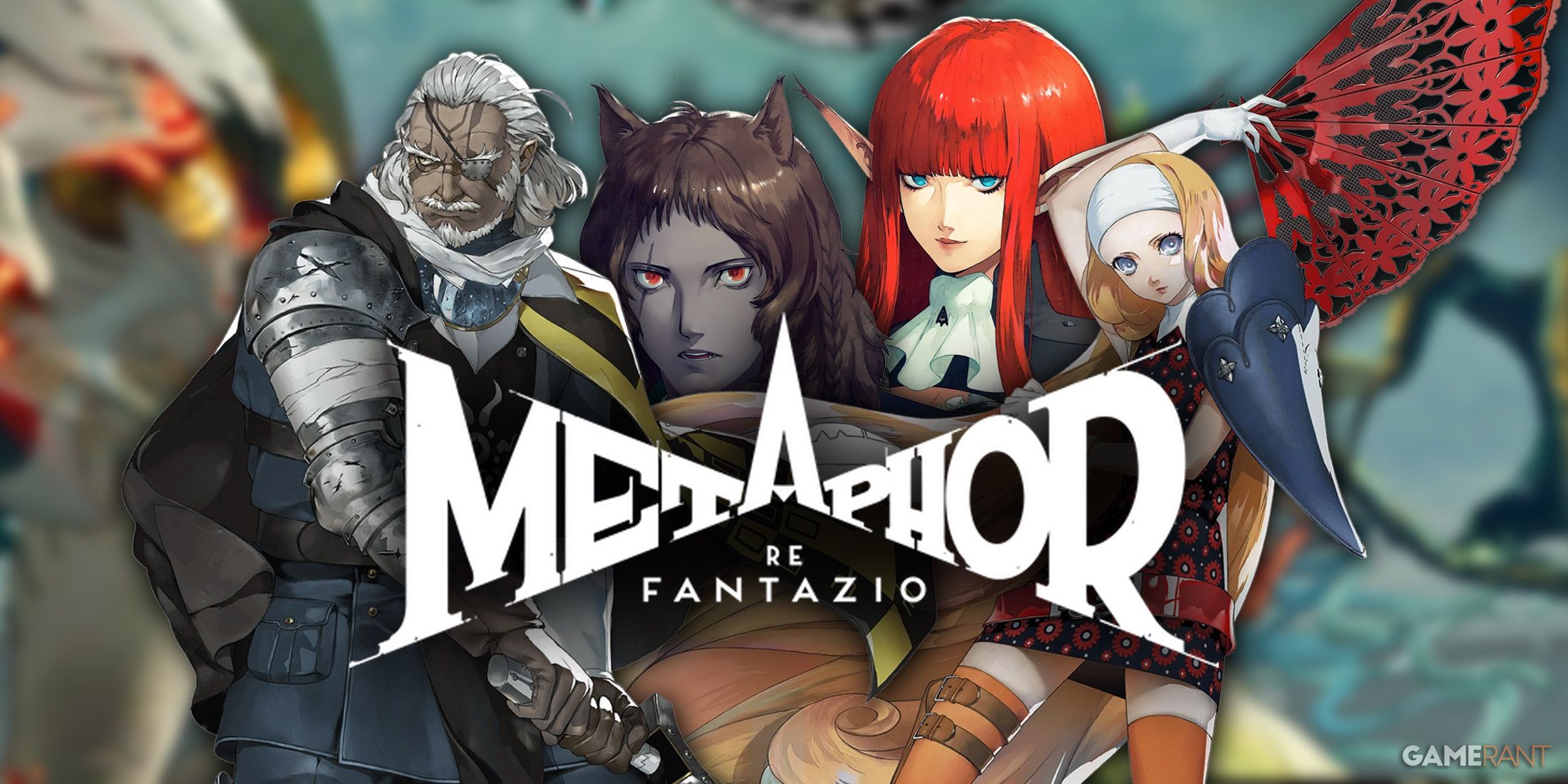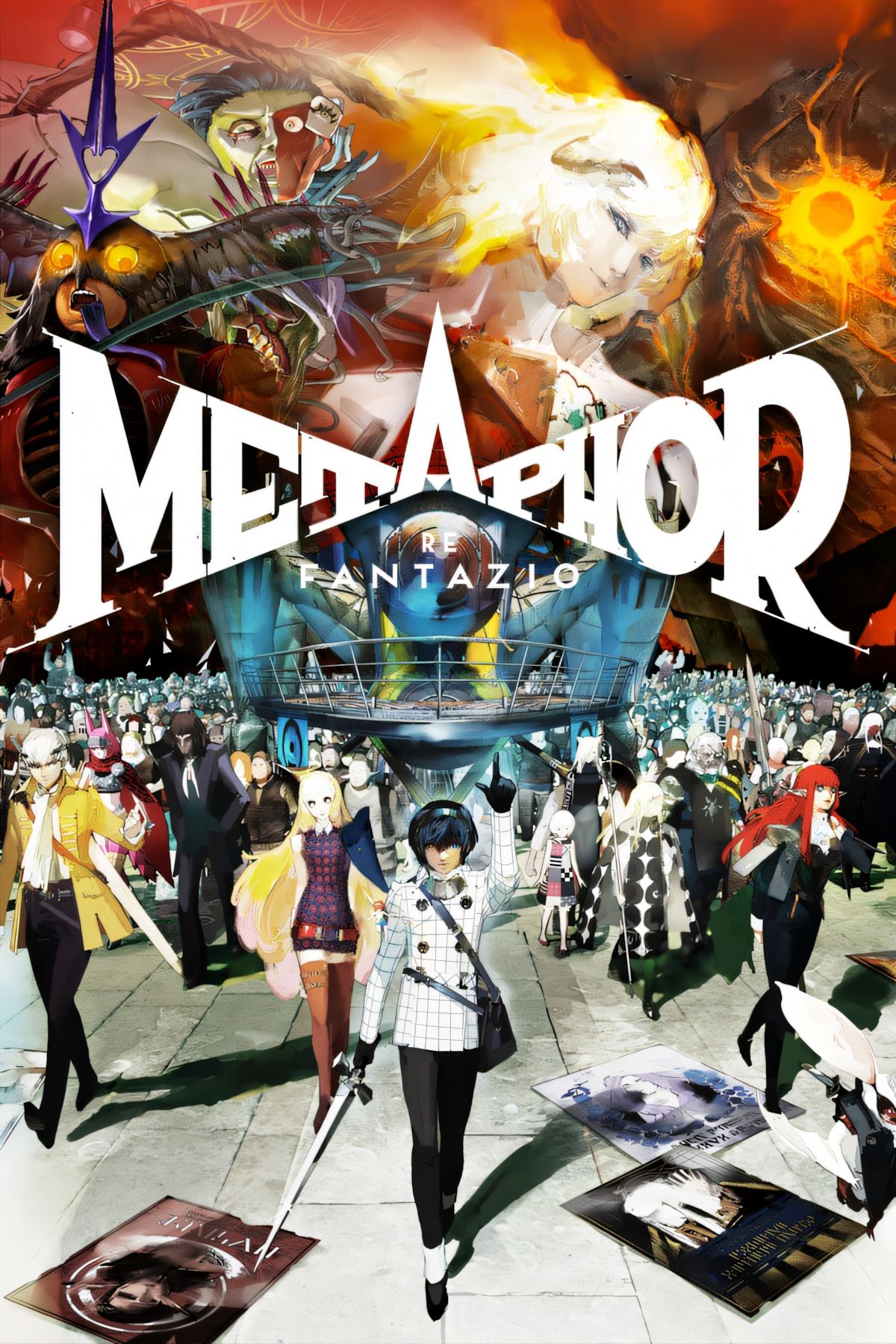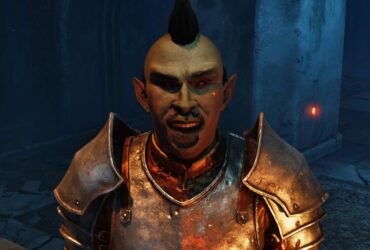This article contains spoilers for Metaphor: ReFantazio, Persona 4, Persona 5 Royal, and P5 Tactica.
Though Metaphor: ReFantazio‘s Louis is a cruel aspirant whose ideals are built on the virtues of strength above all else, he himself is not a god. His motivations are rooted in tragedy, his background as an elda is one shared by the protagonist, and his power is gained not through special circumstances, but rather by his own merits. These merits are, of course, a reminder of just how warped his mindset truly is, as his ideals bleed into a type of ‘survival of the fittest’ mentality that Metaphor‘s party consistently undermines through their helping of those in need. Still, there’s something interesting about the fact that Metaphor opts for Louis as its consistent villainous force, whose wit and nonchalance (at least, at first) allow him to act without a greater being pulling his strings.
If Metaphor‘s elda tribe can be considered as close as a stand-in to real life humans (not to be confused with the monstrous, Hieronymous Bosch-inspired humans of the game), then Louis joins the ranks of compelling human antagonists to come out of Atlus titles. Compared to the modern Persona games, his place in Metaphor: ReFantazio‘s plot is not a pathway for a secret reveal of a malevolent god who has been behind his actions or the state of the world all along. His wielding of magla is a force dependent on the anxieties of the masses themselves, which acts as a natural resource of sorts, showing that people’s fears are not discriminatory by tribe. The same rings true for the capacity for corruption, as explored with Metaphor‘s Sanctist Church and the title’s other supporting villains, oscillating between more sympathetic cases like Joanna and ones less so, like Klinger.

Related
Metaphor: ReFantazio’s Success Could Give Atlus a Triple Threat Release Strategy
Metaphor: ReFantazio’s immense critical and commercial success could encourage Atlus to pursue a new release strategy in the future.
The Villains of Metaphor’s World
Just as Joanna deems people to be ‘beasts of fear and superstition,’ Metaphor‘s plot considers the many ways that prejudice has taken form in its world, and how it can breed more corruption itself. Louis is a prime example of this, whose moral decay can be explained, though not excused, by the events of his upbringing. Metaphor keeps itself grounded in critiquing how its tribes act without necessitating some grand god behind it all, and though its plot does conjure up magical twists and turns of its own, it benefits from keeping its scope to Louis and its ancillary antagonists. The capacity for villainous deeds, just as the capacity for good, isn’t exclusive to one tribe, showing how the societal dynamics of Euchronia’s people are complicated.
Gods as Final Bosses
Taking a turn to Persona, the necessity of a god as the final boss is something that, for better or worse, has been a mainstay of the series. There is no doubt that the presence of a god has made for some fantastic battles; Persona 3‘s Nyx, for example, remains one of the most iconic fight sequences in the series, while the twist with Persona 5‘s Yaldabaoth and Igor is considered by many fans to be its most compelling. Still, the reveal of a larger god at play can sometimes run the risk of overcomplicating a narrative, evidenced in a title like Persona 5 Tactica, which seeks to explain the events of its story through the influence of Salmael, who wishes to uphold humanity’s desire for self-preservation.

Related
Why Metaphor: ReFantazio is a Great Lesson in Late Stage Party Members
Late stage party members can often get the short end of the stick in characterization, though Metaphor: ReFantazio takes care to sidestep this.
Persona 5 Tactica’s Take
Salmael as a plot device is mostly used to explain the circumstances of Persona 5 Tactica‘s story: how the Kingdoms came to manifest in Toshiro’s struggles, etc. The god being the game’s final adversary does let Toshiro actually join the fray as a party member and allows for some unique mashing of previously established mechanics, though it comes at the cost of dissonant pacing and repetitive gameplay; the Phantom Thieves must defeat colour-swapped versions of previous bosses, stretching the plot out beyond its previous focus on Toshiro’s traumas, which made for a genuinely compelling story. Of course, Tactica is just one example, and many fans will appreciate the type of lore-dive offered in Salmael’s reveal, though it should be worth considering whether Persona games wish to break from this pattern.
There’s something to be said about how great grounded villains can be. There’s a reason why characters like Maruki or Adachi are so appreciated, as a villain with profoundly human motivations, or even one who just wants to be evil for the fun of it, can be extremely compelling. Of course, with how Persona handles its gods, there is overlap in its villains’ motivations and the higher forces that bring their goals to fruition; the conceit of Personas themselves is one entwined with Philemon, and so gods can never really be absent from the series’ stories. With that said, a future title keeping its plot more contained to human adversaries by following in Metaphor‘s lead could prove advantageous. While Metaphor has its overtly fantasy setting on its side, the ability to reckon with the existence of gods while keeping them less central to the plot could put greater emphasis on Persona‘s future villains in a way that brings focus to its narrative scope.
Source link












Leave a Reply